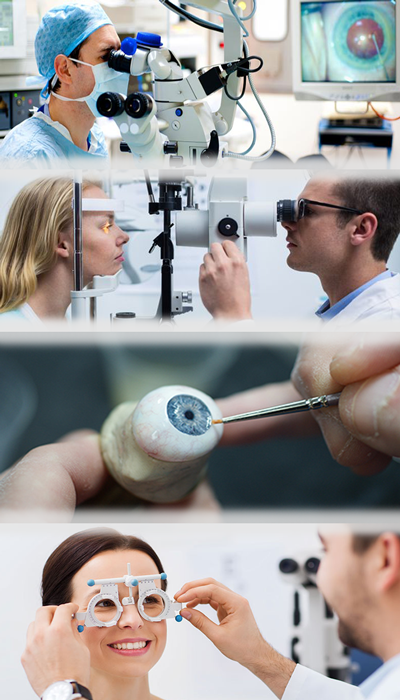The 4 O’s

(Pictured from top to bottom) Ophthalmologist performing surgery, Optometrist examining patient, Ocularist painting an iris, Optician measuring frame width.
Ophthalmologists, Optometrists, Ocularists, and Opticians. Here is what you need to know about each profession and who to go see in certain instances.
OPHTHALMOLOGIST
An ophthalmologist is a highly skilled medical doctor who specializes in eye and vision care. Ophthalmologists either have an M.D. or a D.O. degree and receive special training in all aspects of eye care, including prevention, diagnosis, and medical and surgical treatment of eye conditions and diseases. Ophthalmologists are licensed and credentialed to perform eye surgery, whereas an optometrist is not.
Ophthalmologists are trained to provide the full spectrum of eye care, from prescribing glasses and contact lenses to performing complex and delicate eye surgery. If you are in need or suspect you are in need of eye surgery, an ophthalmologist is the individual you would need to schedule an appointment with.
OPTOMETRIST
Both ophthalmologists and optometrists are involved with the examination of healthy eyes and the diagnosis and treatment of eye diseases. The difference is in the scope of their work. Optometrists do not perform any type of eye surgery, but are trained to detect, diagnose and manage eye diseases that require medical and non-medical treatment. All optometrist should hold a Doctor of Optometry degree (O.D.). A good comparison is that of a General Dentist and an Oral Surgeon, general dentist being the optometrist and the oral surgeon being the ophthalmologist.


